Drone Attack On Saudi Refinery Did Not Affect Supplies, Agency Says
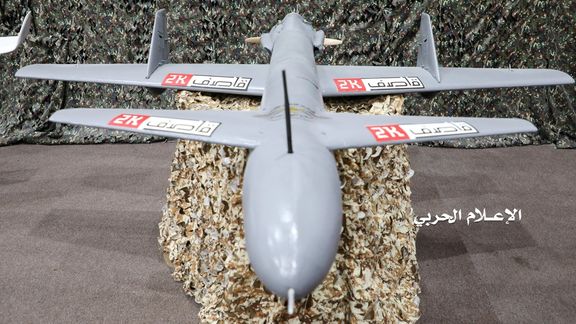
A drone hit a refinery in Saudi Arabia's capital, Riyadh Thursday morning but oil supplies were not affected, Saudi state news agency SPA reported on Friday.

A drone hit a refinery in Saudi Arabia's capital, Riyadh Thursday morning but oil supplies were not affected, Saudi state news agency SPA reported on Friday.
The attack caused a small fire that was controlled and did not result in any injuries or casualties, SPA said citing a statement by an energy ministry official.
"The refinery's operations and supplies of petroleum and its derivatives were not affected," the statement said.
It did not specify where the attack originated from.
The world's top oil exporter has faced frequent missile and drone assaults by Yemen's Iran-aligned Houthi group that has been battling a coalition led by Riyadh for seven years.
The Houthis have not announced any strikes against the kingdom in recent days and the Saudi-led coalition had not issued a statement regarding Thursday's incident.
"These repeated acts of sabotage and terrorism on vital installations and civilian structures ... do not just target the Kingdom but aim to undermine the security and stability of global energy supplies," the statement said.
Saudi Arabia accuses Iran of arming the Houthis and has blamed Tehran for past attacks including a 2019 strike on oil plants. Tehran denies doing so.
The conflict is widely seen in the region as a proxy war between Saudi Arabia and Iran.
Reuters report

(Reuters - Analysis) - By single-handedly knocking 13% off rocketing oil prices on one day this week, the United Arab Emirates showed the power of Persian Gulf producers in the market and sent a wake-up call to Washington to pay closer attention to its longtime allies.
OPEC heavyweights Saudi Arabia and the UAE, which both bear grudges against Washington, have snubbed US pleas to use their spare output capacity to tame rampant crude prices which threaten global recession after Russia's invasion of Ukraine.
Wednesday's sharp oil price fall, the biggest one-day drop in almost two years, followed comments by the UAE ambassador to Washington, who said his country supported pumping more oil.
Prices rebounded when the UAE energy minister contradicted him and said the Gulf state stuck by an output pact agreed with OPEC+, which groups the Organization of the Petroleum Exporting Countries and its allies, including Russia.
"This was deliberate," Gulf Research Center Chairman Abdulaziz Sager said of the conflicting UAE comments, adding that the message being sent to Washington was: "You need us, we need you, so let's settle the issues between us."
He said Washington, which flagged Russia's plans to invade Ukraine long before Moscow's troops crossed the border on Feb. 24, should have coordinated more closely with Arab producers in the buildup, rather than turning to them once the crisis hit.
"Gulf states have over many years built a good relationship with Russia, they cannot just overturn things," he said.
The United States wants the Persian Gulf Arab producers to side with the West over the Ukraine crisis but Washington has eroded its political capital with Riyadh and Abu Dhabi by not heeding their concerns about regional rival Iran, ending its support for their war in Yemen and slapping conditions on US weapons sales to them.
REBUILDING TRUST
Saudi Crown Prince Mohammed bin Salman was incensed by President Joe Biden's refusal to deal directly with him as the kingdom's de facto ruler because of the 2018 murder of Saudi journalist Jamal Khashoggi. A US intelligence report implicated the prince, who denies any role.
"There are many problems between the US and its Gulf allies that need to be addressed widely and resolved," said a regional source, saying trust needed to be rebuilt. "It has nothing to do with Russia or the Ukraine war."
The source said Washington should have acted before the Russian invasion. "The US administration knew it was heading towards a crisis. They should have fixed relations with their allies, coordinated and lined them up in advance ... not just expect them to comply and handle oil prices."
Mistrust has built up since the 2011 Arab uprisings when Persian Gulf Arab rulers were shocked at how the administration of President Barack Obama abandoned the late Egyptian President Hosni Mubarak after a 30-year alliance, allowing him to fall and ignoring their concerns over the rise of the Muslim Brotherhood.
Sunni Muslim countries in the region also felt blindsided when Washington reached a nuclear deal with Shi'ite Iran in 2015 that did not tackle Gulf concerns about Tehran's missiles program and regional proxies in Yemen, where the Gulf neighbors have been embroiled in war, and Lebanon, now deep in crisis.
Saudi Arabia felt particularly spurned in 2019 when missile and drone attacks on the kingdom drew a lukewarm US reaction, although Riyadh and Washington both blamed Tehran. Iran denied having a role.
The UAE felt equally frustrated in January when Yemen's Houthis launched attacks on Abu Dhabi. Despite UAE calls for Biden to reinstate a terrorist designation for the Iranian-backed group, Washington has yet to do so.
PHONECALL SNUB
The Gulf source and another source familiar with the matter told Reuters that Biden had irked UAE de facto ruler Abu Dhabi Crown Prince Mohammed bin Zayed, known as MbZ, by not calling swiftly after the Houthis struck.
"Biden called him three weeks after. MbZ didn't take the call. Your ally comes under a terrorist attack and you wait three weeks to call?" the source said.
White House National Security Council spokesperson Emily Horne said on Wednesday there had been "no issues with having a call" and Biden would speak with the UAE leader soon. A UAE foreign ministry spokesperson said a call was being scheduled.
Last month, Biden spoke with Saudi's King Salman while the crown prince, known as MbS, was in the room. Sources said Biden had asked to speak with the crown prince but MbS declined because the call had only been scheduled with the king.
The White House and Saudi government did not immediately respond to a Reuters requests for comment on the episode. The White House told a briefing on Monday there were no plans "at this point" for Biden to call MbS.
The Ukraine crisis has erupted as the United States, Russia and other world powers have been in talks to revive the nuclear pact with Iran. But Moscow may have derailed those efforts for now by demanding guarantees from Washington that Western sanctions on Russia do not affect its business with Iran.
Regional Sunni Arab states have long felt their concerns have not been addressed in those talks, fearing a deal will empower Iran and its regional proxies.
Persian Gulf oil producers are still likely to side with the United States, which they depend on for their security, over their ties with Russia that focus on energy and business.
"Ultimately, the US does have clout, but the Saudi and Emirati resistance threshold is particularly high at present, given their deep dissatisfaction with US policy towards them," said Neil Quilliam, associate fellow at Chatham House.
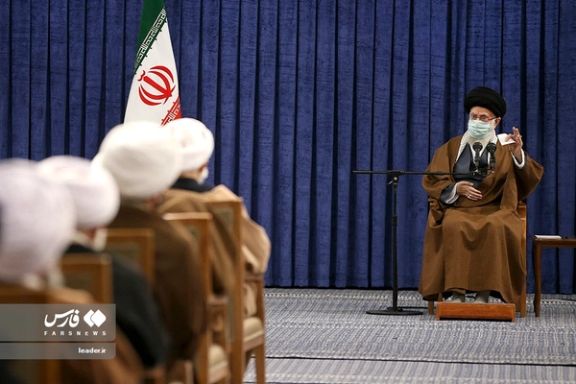
Iran’s Supreme Leader Ali Khamenei says retreating against the United States in exchange for sanctions relief would be a “big and naive mistake.”
Addressing members of Iran’s Assembly of Experts on Thursday, Khamenei insisted that to retreat in the face of American pressure or any other power for securing protection against sanctions, will deal a blow to the nation's power.
He added that Islamic Republic’s presence in regional countries and its nuclear program are two factors that contribute to the country’s national power, saying, “Regional presence gives us more strategic depth and national strength. Why should we give it up? Scientific nuclear progress is needed for country’s future”.
Khamenei said it is naïve to reduce Iran’s military programs to get concessions from the West, noting that “security” and military power contributes to Iran’s bargaining power “to fulfill national interests at the regional and global front.” He added, “It is vital for any country to have national power”.
Iran has boosted its uranium enrichment since the United States withdrew from the 2015 nuclear agreement and continued it support for regional militant groups that act as its proxies in various countries. It has also expanded its missile program that West and several regional countries, such as Israel and Saudi Arabia are concerned about.
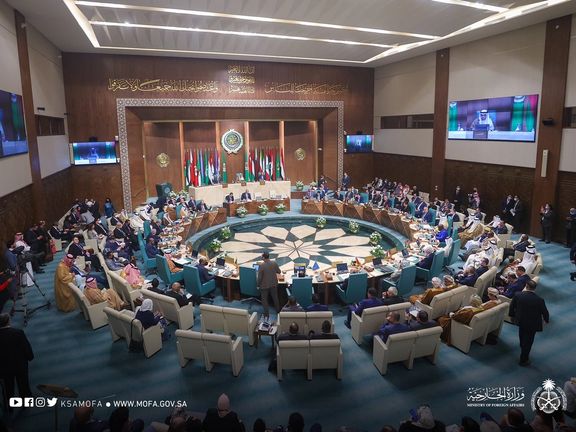
The Arab League has once again criticized the Islamic Republic for its support of militant groups in Arab countries and its ballistic missile program.
The Council of the League of Arab States, which was held at the level of foreign ministers on Wednesday in Cairo, expressed concerns over Iran’s support for separatist elements that threaten Morocco's integrity.
The meeting endorsed a resolution proposed by the Ministerial Committee of the Arab Quartet – comprised of Saudi Arabia, the United Arab Emirates, Bahrain, and Egypt as well as the Secretary-General of the Arab League, and tasked with monitoring and countering Iran’s interventions.
The resolution calls for solidarity with Morocco in confronting the interference of Iran and its ally Hezbollah through arming and training the separatists, describing them as an extension of the Tehran's actions aimed at undermining regional security and stability.
In January, Iran’s Foreign Ministry rejected Moroccan Foreign Minister Nasser Bourita’s claims that the Islamic Republic wants to infiltrate Africa and expand Shiite ideology on the continent, describing the remarks as “unfounded projections”.
Morocco severed diplomatic ties with Iran in 2018, saying the Tehran-backed Lebanese group Hezbollah was training Polisario Front separatist fighters against Morocco in Western Sahara.
Iran-backed Houthis have also launched missile and drone attacks on three occasions against the UAE in January.
Many countries in the region accuse Iran of interference in their domestic affairs by using armed proxy groups.
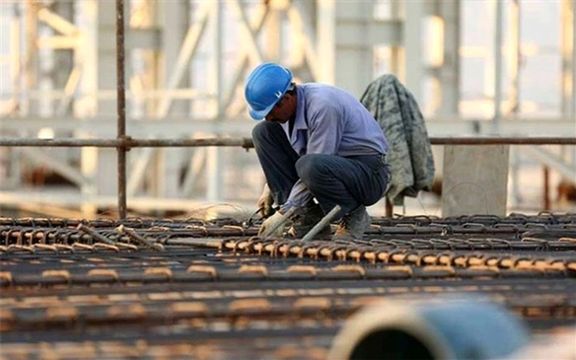
Iran has increased the minimum monthly salary for the next Iranian year (starting March 21) by 15,000,000 rials (about $60) or around 57 percent.
After a 15-hour session of intense negotiations that started Wednesday evening, members of the Supreme Labor Council agreed to raise the minimum wage from 26,550,000 rials to 41,790,000 rials, which is nearly $170 in today’s exchange rates.
The parliament’s budget committee had announced in January that the minimum salary would be higher at 56 million rials (about $200), noting that the figure was about 20 percent higher than what was proposed by the presidential administration.
With the monetary allowances for housing, food and children, the final wage will increase the total to 62,000,000 rials – almost $250 a month, before $24 is withheld for payroll taxes. The government intends to raise asset taxes after the New Year.
Iran has one of the lowest minimum wages in the world, but salaries were increasing from 20 years ago to about 10 years ago when the minimum wage hit a record high of about $275 in 2010. This coincides with the time when the United Nations Security Council began imposing sanctions to force Tehran to roll back its nuclear program.
Labor groups insist that the poverty line in Iran is now around $400 a month for a family of 3.3 people, so the proposed minimum wage is half of the needed money just to be able to survive.
Considering the roughly 60-percent rise in food prices this year and an over 40-percent inflation rate, most of the population is set to become dramatically poorer.

Two days after Iran launched a military satellite, a key source has claimed victory saying Tehran has successfully resisted US pressures on its missile program.
Nour News close to Ali Shamkhani, the secretary of the supreme national security council said on Thursday that Iran will not negotiate over its defense capabilities. The website also praised Tehran’s negotiators in the Vienna nuclear talks for having thwarted US attempts to force Iran to discuss its missile program.
The website boasted that while the Revolutionary Guard unveiled two underground bases for missiles and military drones on March 5, the rocket carrying the satellite lifted off on March 8.
“These developments took place while the United States and Europe, both in the JCPOA talks [in the past] and in the new process [in Vienna] were insisting that simultaneously missile and regional issues to be discussed and an agreement similar to JCPOA be signed between Iran and the West,” Nour News said.
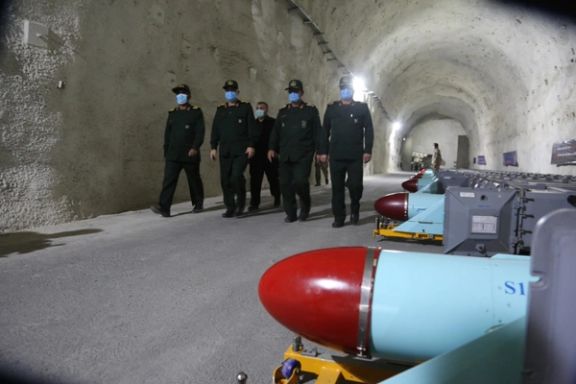
When former president Donald Trump withdrew from the 2015 nuclear deal known as JCPOA, one his main demands was that Iran should stop its ballistic missile program that threatened the region and could be developed into a nuclear delivery system in the future. He imposed ‘maximum pressure’ sanctions to force Iran to renegotiate the JCPOA and accept other conditions, including limiting the missile program.
Nour news said that US pressures failed, and sanctions could not force Iran to make any concessions on other issues.
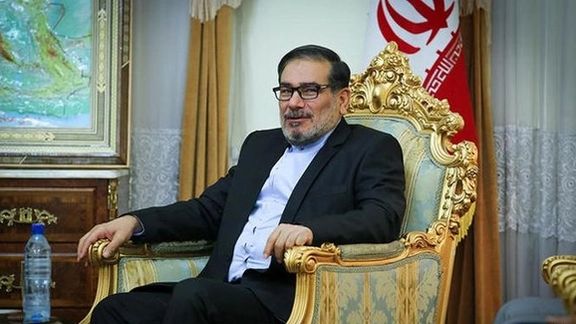
The Biden Administration took office having already signaled that it wanted to return to the JCPOA and kept Iran’s missile program and the issue of its aggressive regional policies off the table, saying that these could be pursued in future talks.
Referring to statements by Biden officials that Trump’s ‘maximum pressure’ was the wrong policy that failed, Nour News said, “negotiations not only had no impact on pursuing [Iran’s] defense, missile and space projects, but the largest military drills involving missiles and drones, as well as unveiling new missile bases,” have been accomplished during nuclear talks.
Nour News then goes on enumerating two “messages”. First, “Iran is not willing to hold any sort of negotiations over its defense, space and regional issues,” and second, “any negotiations and possible agreements cannot be factors limiting Iran’s defense, missile and space programs.”
The issue of Tehran’s space program worries the United States because rockets developed to put satellites in orbit can be easily used as intercontinental ballistic missiles to deliver nuclear warheads, directly putting Europe and the American mainland in danger.
Nour news then delivers a message to domestic political circles who advocated flexibility in talks with the West that their reasonings were wrong and refusing to compromise bears fruit.
“Unfortunately, in the past there was a mentality that Iran’s missile and space programs were provocative and should not be pursued while economic agreements were being signed with Western countries,” the website said. But now, amid nuclear talks in Vienna, Iran “has launched its second military satellite.”